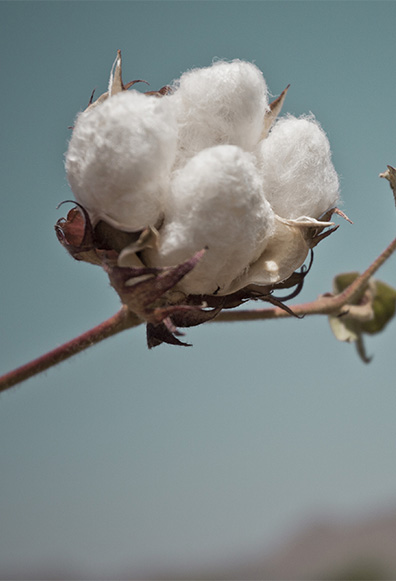Countries:
Brazil
Status:
Completed
Sector:
Nature
AGROcotton sought an alternative to conventional cotton by identifying and promoting the potential for sustainable organic cotton production through agroforestry systems.
Brazil, a major global producer of cotton, has experienced detrimental environmental impacts related to an expansion of conventional cotton production – particularly deforestation. Agroforestry systems for Organic Agroforestry Cotton production (OAC) can play a pivotal role in addressing these environmental impacts. Additionally, they provide a potential solution by combining environmental protection with food and materials production – and income generation – to support a green and inclusive recovery. However, adoption by farmers has been limited by a number of barriers, particularly a lack of financial resources.
The AGROcotton project undertook a market analysis study to determine the potential demand for OAC, focusing on the fashion industry as a niche market. Additionally, the project built capacity amongst local farmers for OAC production in the Mato Grosso region of Brazil through workshops, trainings, and pilot studies. Through these actions, AGROcotton sought to
promote economic empowerment for these marginalised groups by removing the barriers to effective participation in agroforestry.
Expected long-term outcomes include:
(i) sustained reduction of Greenhouse Gas emissions,
(ii) green and resilient recovery reducing deforestation, biodiversity loss and water stress, and
(iii) inclusive recovery generating income opportunities for marginalised communities.
This project was delivered in partnership with FARFARM and the University of Brasilia.
“[AGROcotton represents] a way for our community to survive in ways compatible with the natural resources of our land. We have learned a lot, and now have all we need to succeed.”
Kleber Rodrigues Meritororeu
Cacique (head) of the aldeia, Indigenous participant farmer, Mato Grosso state
“The project is a way to unite the family, to get to know the life and opportunities my mother has in the countryside, and to better understand how agriculture works.”
Gabriela
Student and participant farmer

upskilling over 60 farmers in financial, management and agricultural practices for OAC systems
mapping land constraints, capturing and standardising bio-physical, geographical and socio-economic factors to determine most suitable areas for OAC deployment in Brazil
to characterise potential demand for OAC, identifying the potential willingness to pay and the required social and environmental criteria to be met by suppliers
with stakeholders of the organic cotton supply chain in Brazil on policies to encourage the production and commercialisation of OAC
To facilitate the expansion of OAC in Brazil, AGROcotton has directly impacted more than 60 farmer families through in-person and virtual capacity building events run by expert technicians. These have embedded the importance of OAC farming and regenerative methods of production for food and textile fibres, instilling cultural transformation in a region known for unsustainable farming practices.
Key project outputs included:
Training activities organised by EMPAER engaged around 60 farmer families. With a life cycle of 20 years, OAC systems are expected to generate long-lasting security
between vulnerable farmers and extension services in the region, with 17 EMPAER technicians trained and equipped to support farmers
provided where organic cotton is in high demand, including offtake agreements with fashion industries interested in purchasing the cotton
Pilot cases for OAC cultivation provided the opportunity for marginalised rural farmers to develop the skills to successfully design and manage an OAC project
The primary counterparts of AGROcotton are vulnerable farmers in Brazil. These farmers have faced a number of barriers to effective participation in organic agroforestry such as limited access to credit, insecure land tenure and underdeveloped agroforestry value chains.
AGROcotton sought to build assets, capabilities and opportunities for vulnerable family farmers, removing these barriers. The project engaged over 60 families in training activities in Mato Grosso and 31 families in pilot cases for the cultivation of OAC. The family farmers involved in the project were classified as vulnerable farmers due to their socio-economic conditions including gender, ethnicity, land tenure security, and size of property.
Key GESI-related activities and related outcomes include:

The project has directly supported vulnerable farmers in Brazil and promoted the introduction of OAC. In doing so the project has identified several lessons and recommendations:
Fashion Market Niches for Organic Agroforestry Cotton: Market Potential for Promoting Sustainable Supply Chains
Visit websiteIntroduction of agroforestry to Xavante indigenous villages
Visit websiteUK PACT (Partnering for Accelerated Climate Transitions) is a unique capacity-building programme. Jointly governed and funded by the UK Government’s Foreign, Commonwealth and Development Office (FCDO) and the Department for Energy Security and Net Zero (DESNZ) through the UK's International Climate Finance, it works in partnership with countries with high emissions reduction potential to support them to implement and increase their ambitions for tackling climate change.
© Copyright 2025 UK PACT Privacy Notice Cookie Policy